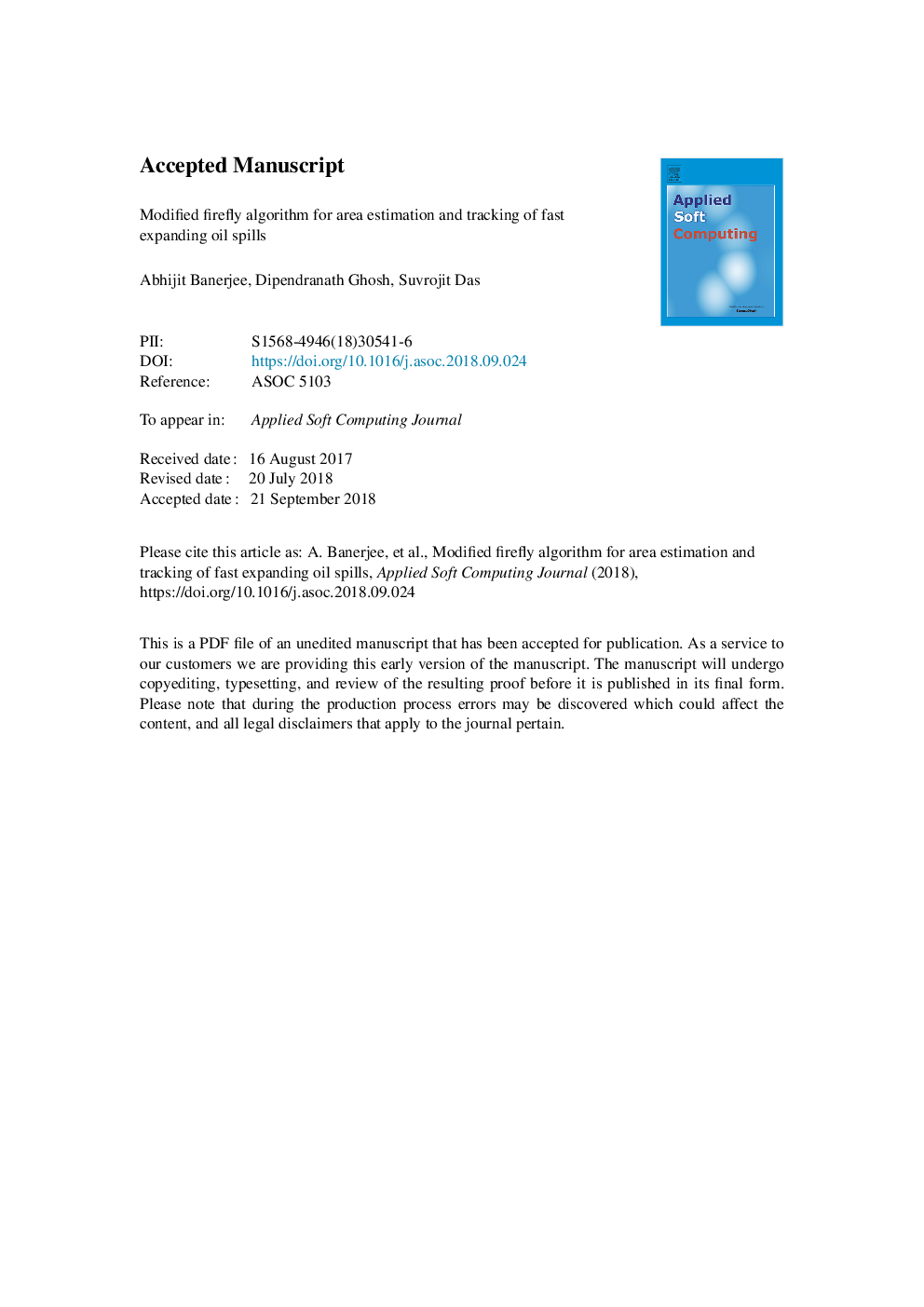| Article ID | Journal | Published Year | Pages | File Type |
|---|---|---|---|---|
| 11031607 | Applied Soft Computing | 2018 | 38 Pages |
Abstract
Oil Spills are one the major environmental hazards in modern era. It needs to be understood; its origin and trajectory duly analyzed and tracked; so as to confine it in a limited spatial domain of least contamination. In this study, we propose a Modified Firefly Algorithm (PropFA) which is closely based on Firefly Algorithm (Yang, 2008). Unlike Firefly Algorithm, no parameter tuning is required in PropFA as all parameters are dynamically calculated based on present, past and expected objective function values; thus maintaining a proper balance between “exploration” and “exploitation”. The proposed algorithm is evaluated over 18 Classical Benchmark Functions, 14 Benchmark Functions of CEC-2005 (Real-Parameter Optimization) and 28 Benchmark Functions of CEC-2013 (Special Session on Real-Parameter Optimization). PropFA is compared to modern evolutionary and metaheuristic algorithms like PSO, CMA-ES, RC-MEMETIC, EDA etc. The numerical results show that the PropFA enhances the performance of Firefly Algorithm; successfully avoids local minima across dimensions and has a fast convergence. PropFA is then used to model a system for distributed control of swarm UAVs (UnManned Aerial Vehicles) to efficiently search, confine and track the shape and area of irregular dynamic oil spills for fast containment and trajectory estimation. The proposed method is also used to predict boom placement locations around the spill for its efficient confinement. Experimental results revealed that the proposed method as applied on a swarm UAV size of 30 was able to search, fully confine and track an expanding oil spill as large as 16km2 for 9Â min.
Related Topics
Physical Sciences and Engineering
Computer Science
Computer Science Applications
Authors
Abhijit Banerjee, Dipendranath Ghosh, Suvrojit Das,
